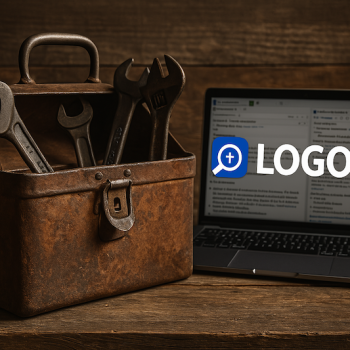Also, the lines between 'traditional media' and 'new media' are quickly blurring. Newspapers have started blogs, are active on Facebook and Twitter, and comment boxes are now standard on every online article. On the other hand, many bloggers now turn their posts into print-on-demand books.
So in the future, I don't think we'll focus so much on whether someone is a journalist or not, or whether someone is part of 'the media'. Instead of asking whether you're a 'reporter', we'll instead wonder what kind you are? Are you the kind with a soapbox and a megaphone or are you the kind with a table and an open chair?
Traditional media has given new media a backbone, while new media has provided traditional media with dialogue.
What factors might come into play in any eventual alignment between "journalists" and "citizen journalists"?
People are increasingly trusting 'the crowd' rather than experts. Now, before people go the movies, they check Rotten Tomatoes before the newspaper critics. When they buy a book, they read Amazon reviews. And, most importantly, when news breaks they first hear it from their peers. Look at the recent Virginia earthquake or the revolutions throughout the Middle East. Some people followed these events through television news, but many were absorbed in the grassroots reporting happening on Facebook and YouTube.
In the coming years, 'citizen journalists' will force traditional journalists to re-create themselves. No longer will the professional journalist center his work around 'the scoop.' In most cases, there's just no way he's going to break a story before it hits Twitter and Facebook. He needs to instead turn his focus toward quality and in-depth reporting. Most traditional journalists are talented writers and clear thinkers. Those skills—not quick, breaking stories—will set them apart from 'citizen journalists.'
Pope Benedict is a huge advocate of alternative media—he's out there telling priests and layfolk to get involved with alt-media as an evangelical tool. He gets it? Tell me your thoughts on Benedict as New Media Cheerleader!
One of the great ironies of Catholic new media is that our 84-year-old pope understands its necessity almost as much as anyone. When people tell me these tools are just a fad among young people, I always point to Benedict. No priest, religious, or layperson has an excuse if our elder pontiff is using an iPad to launch a tweet.
Some people snickered at Benedict's iPad stunt, but I thought it spoke volumes to the world. The Church is often construed as out-of-date, inhuman, behind-the-times. But by that gesture he implicitly welcomed the Church into the digital age.
In May you attended the beatification ceremony for JPII, in Rome, and then—the next day—an unusual meeting between bloggers and members of the curia; tell me what it was like to be there at the beatification, both as a journalist and a faithful Catholic, and then, about the Vatican-blogger meet-up. Did those two events following so hard upon each other, give you some additional insights into the use of New Media in evangelization and understanding?
Attending the beatification of one of my greatest heroes was deeply moving. John Paul II was instrumental in my conversion to Catholicism three years ago and his teachings and prayers continue to direct my own faith and work.
It's no coincidence, though, that the blogger meeting was scheduled next to the beatification. At the Vatican blogger meeting, we were told that the Vatican wanted to use new media to create a "dialogue with the world." Well, who did that more than John Paul II? He traveled to more countries and was seen by more people than any religious leader in the history of the world. When it came to non-Catholic faith traditions—even atheism—he was in constant conversation.
More importantly, as the Catholic Church has so much fear and hesitancy toward new media, John Paul's famous command should continue to echo in the ears of us all—"do not be afraid!" In The Rapid Development, the last document John Paul wrote before his death, he explicitly linked this command to the burgeoning new media. There he roared, "Do not be afraid! Do not be afraid of new technologies!"
You're not profiting from this book at all - 100 percent of its earnings will be going to a specific cause in Africa, can you tell us about it?
When I was putting together the book, I was praying about the content and asking God for direction, when I quite clearly felt him saying, "Give away the royalties." Now I didn't set out to make money with the book, but the idea of giving away the profit was nonetheless grating. So I tried to rationalize my way out of it—"Oh, but Lord, think how many books I could buy that would draw me closer to you!"—yet it was all to no avail. "I've provided you a good job that pays for all your needs. So give away the money."





